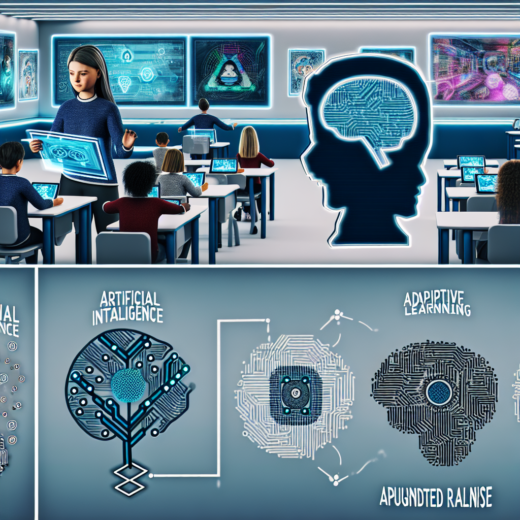Introduction
In the rapidly evolving landscape of educational technology, the sector focused on special needs is emerging as a particularly vital area. Innovations in EdTech tailored for students with disabilities or special needs hold transformative potential, offering not just enhanced learning experiences but also promising avenues for educational equity. As startups delve into this niche, they are unlocking new opportunities, meeting unique challenges, and reshaping conventional educational paradigms. This exploration of EdTech for special needs underscores the innovation potential, the disruptive market dynamics, and the strategic underpinnings essential for achieving success.
Innovation Potential and Market Disruption
The intersection of technology and education for special needs is ripe with innovation. Technologies such as artificial intelligence, machine learning, augmented reality, and virtual reality are being leveraged to create personalized and interactive learning environments. These tools are not just novel; they are essential, as they cater to diverse learning styles and abilities, thereby democratizing education for all.
For instance, AI-driven tools can offer real-time adaptations in lessons for students with cognitive disabilities, ensuring that learning pacing aligns with individual needs. Companies like Cognii are spearheading AI-driven personalized learning solutions that allow for adaptive feedback, a significant aid for special needs education.
The market disruption emerges from the gap between conventional educational resources and the needs of students with disabilities. Traditional education often fails to adequately address these needs, creating a space where innovative startups can intervene. By developing tailored learning tools, startups not only address these gaps but also disrupt old models to create more inclusive educational experiences.
Key Challenges in the EdTech for Special Needs Sector
Developing learning tools for students with disabilities presents unique challenges. Firstly, understanding the diverse and intricate needs of these students requires profound empathy, extensive research, and collaboration with educators, therapists, and psychologists. Each disability presents unique requirements, whether it involves creating sensory-friendly interfaces for students with autism or developing communication tools for students with speech impairments.
Moreover, startups face the challenge of navigating a fragmented market landscape that is highly regulated. In many regions, educational materials, especially those targeting special needs, require compliance with stringent educational and accessibility standards. The need for research-backed solutions underscores the importance of partnerships with academic institutions and industry experts to ensure products are both innovative and compliant.
Unique Opportunities for Startups
For startups, focusing on EdTech for special needs offers distinct opportunities. The increasing awareness and advocacy for inclusive education drive demand for more sophisticated educational tools. This demand is further fueled by legislative frameworks such as the Individuals with Disabilities Education Act (IDEA) in the U.S., which mandates tailored educational experiences for students with disabilities.
Further, the market for assistive technologies is expected to grow substantially, providing a fertile ground for startups to scale their innovations. According to a report by Market Research Future, the assistive technology market size is projected to reach $31 billion by 2025, highlighting a lucrative opportunity for tech-savvy entrepreneurs.
Strategic Approaches to Success
To navigate the complexities of the EdTech for special needs landscape, startups must adopt strategic approaches to fundraising, scaling, achieving product-market fit, and customer acquisition.
Fundraising and Financial Strategies
Securing funding in the EdTech space, especially for special needs, requires demonstrating both social impact and financial viability. Startups can leverage grants, such as those from accessible innovation funds, impact investors, and crowdfunding platforms geared towards social enterprises. Building a strong narrative around the social good and potential educational impact is critical in attracting investors who are aligned with the mission.
Scaling and Product-Market Fit
Achieving product-market fit in the special needs sector necessitates deep user engagement and iterative development processes. Startups must maintain close interactions with their end-users—students, educators, and parents—to ensure that the products meet the evolving and diverse needs of students with disabilities. Scaling then involves tailoring solutions to broader markets while maintaining the nuance required for individual disabilities.
Customer Acquisition and Retention
Given the niche nature of the market, customer acquisition strategies should focus heavily on partnerships and building trust within educational communities. Collaborating with schools, special education programs, and advocacy groups can enhance credibility and expand reach. Furthermore, offering trial periods and demonstration sessions can help in showcasing the practical benefits and securing long-term adoption.
Case Studies of Successful Startups
Examining real-world case studies offers valuable insights into how startups are successfully maneuvering the EdTech for special needs space. Speechify, for instance, has developed a robust text-to-speech application widely applauded for its effectiveness in assisting students with dyslexia and other reading disabilities. By leveraging their technology, they have reached a vast audience, driven by a model that prioritizes accessibility and ease of use.
Similarly, AssistiveWare has made significant strides with its AAC apps designed for students with communication challenges. Their success underscores the importance of creating intuitive and empathetic user interfaces, coupled with a business model that prioritizes user feedback for continuous enhancement.
Academic Research and Industry Insights
Academic research plays a pivotal role in driving innovation in EdTech for special needs. Studies such as those from the Journal of Special Education Technology emphasize the importance of user-centered design and the role of technology in fostering independent learning among students with disabilities. Insights from such research inform product development and ensure that technologies are grounded in validated educational practices.
Conclusion
EdTech tailored for special needs students represents a dynamic intersection of technology, empathy, and education. By focusing on innovation, disruption, and strategic growth, startups have the power to redefine educational experiences, making them more inclusive and effective. The journey is fraught with challenges but also rich with opportunities to influence lasting change in the lives of students who need it most. As entrepreneurs, investors, and educators work together in this transformative space, they not only drive market success but also contribute to a more equitable and accessible educational future.

